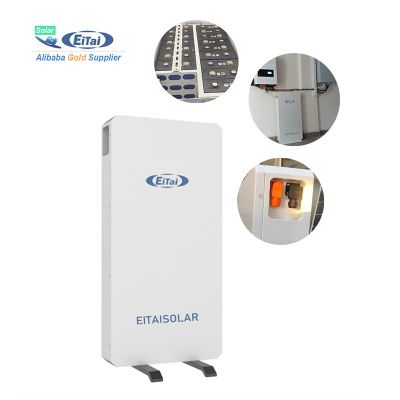
The LiFePO4 Lithium Battery
The lithium iron phosphate battery (LiFePO4) is an increasingly popular option for off-grid power systems. It is safer to use than Lithium-Ion batteries and has a longer lifespan. Its cost is also more reasonable than Lithium-Ion batteries.
One feature that everyone will appreciate is the built-in Bluetooth that allows you to monitor your battery. This eliminates the need for a separate battery monitor or Shunt saving money and space.
Safety
Despite a number of high-profile incidents involving lithium batteries, this energy storage system has had a good record of safety. However, it is important to follow the right maintenance procedures in order to keep your battery safe and extend its life. For example, the battery should be stored in a cool and dry environment to avoid overcharging and short circuiting. In addition, the battery should be protected from impact and crush damage.
Compared to other lithium-ion battery types, lifepo4 batteries are considered the safest because of their low operating temperature and stable cathode material. They are also less prone to thermal runaway, which can cause the battery to overheat and explode. Other lithium-ion battery chemistries, such as LiCoO2 and LiMnO2, can pose a fire risk because the oxygen atoms are not strongly bonded to the cobalt in these batteries.
Another important aspect of lithium battery safety is the ability to tolerate high temperatures. This is why lifepo4 batteries are used in devices that work in hot environments. To ensure this, the batteries must be assembled by a qualified battery pack assembler. If a hobbyist purchases li-ion cells from an unapproved supplier, they may be at risk of fire hazards. Battery manufacturers have made it difficult for hobbyists to purchase individual lithium-ion cells off the shelf. However, some companies offer kits that include approved battery cells and the necessary electronics to prevent overheating.
Efficiency
LiFePO4 is the safest lithium battery on the market and has the highest cycle life compared to other batteries. It also requires less energy to produce compared to other lithium batteries, so it is good for the environment. Its long lifespan also reduces the number of batteries that are disposed of. It also means that we don’t need to buy new ones every few years, saving money and reducing pollution.
Another important feature of lifpo4 is that it has excellent temperature tolerance. lifepo4 lithium battery It can handle high temperatures better than other lithium batteries and can work in low temperatures as well. This makes it a great choice for off-grid applications. It can even work in the freezer, although it is not recommended to leave a battery in a freezing temperature for extended periods of time.
In addition, lifpo4 has a long lifespan and is much more affordable than other lithium batteries. Its cost is also lower than nickel cobalt and zinc chemistry batteries. In fact, lifpo4 batteries can last up to 10 times longer than lead-acid and AGM deep cycle batteries.
LiFePO4 batteries can perform a large number of cycles, making them a great option for off-grid applications and solar power systems. Unlike other batteries, they do not need to be charged at a specific voltage. In addition, they can withstand high currents for a short period of time.
Weight
Lithium batteries offer a significant weight savings and occupy up to 40% less space than lead acid batteries of the same capacity. A three group 31 size 100 Ah lead acid battery weighing 200 pounds can be replaced by two group 31 lithium batteries weighing 62 pounds. Also, the lithium batteries can be safely drawn down to 90% vs 50%-60% for lead acid, which means more power is available in less battery volume.
LiFePO4 batteries are one of the safest lithium batteries available and are more durable than other lithium chemistries. They are not prone to swelling and are non-flammable. They are ideal for applications such as mobility scooters, electric vehicles, standby power, alarm panels and solar setups.
LiFePO4 batteries have a built-in BMS (battery management system), which monitors the battery and controls charging and discharging. The BMS ensures that the batteries do not overcharge or short circuit. It also monitors temperature and maintains a constant voltage. This helps prevent the batteries from becoming a fire hazard if they are overcharged. The BMS also provides a four light LED meter that indicates the battery’s state of charge.
Cost
Unlike traditional lead-acid batteries, lithium batteries are not subject to frequent replacement and require minimal maintenance. They also have a long lifespan and high energy density, making them an excellent choice for backup power systems. These batteries can operate in a variety of temperatures, and they can withstand shocks and vibrations. In addition, they are non-toxic and do not contain rare earth metals, which makes them an environmentally conscious option.
Lithium iron phosphate batteries are safe, lightweight, and offer an extended battery life compared to cobalt-based lithium ion cells. They also lifepo4 lithium battery have a lower rate of internal degradation, which is an advantage when used in applications that may require frequent charging or discharging. Additionally, they do not explode under extreme conditions, which is a significant benefit for safety purposes.
These batteries are also environmentally conscious, reducing the amount of cobalt and nickel entering the environment through e-waste. In addition, they are less expensive than cobalt batteries and do not have the same toxicity issues.
Although the initial price of a lithium battery is often twice as much as a lead-acid battery, it will last up to three times longer. In addition, lithium batteries are a great choice for off-grid power systems. In order to maximize the lifespan of a lithium battery, it is important to regularly check its internal voltage and avoid overcharging.


